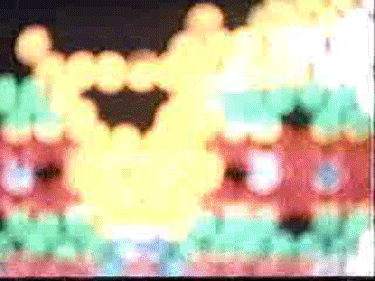I'm almost finished reading the book Carrie, by Stephen King. My mom is a huge Stephen King fan and owns almost all of his books, not to mention books he's published under his other pen name; Richard Bachman. We currently have an entire bookshelf filled with just Stephen King books:

I've only read a handful of them, and I'm only really familiar with the more popular ones (made into movie stories) except for The Girl Who Loved Tom Gordon which I fell in love with when I was much younger and still remember well. So I've sort of challenged myself to read them all, and in chronological order. There are so many so this would probably end up taking me at least a year if not much longer. And after each book I've finished, if there is a movie that's been made from it, I want to watch it; and of course take note of the differences between the two.
Carrie was written in 1974 but set in 1979. There are certain references made throughout that I'm not completely familiar with, and like any book I read, I like to know exactly what is going on. Even if I don't need to know the meaning of the reference to understand the plot of the book, I feel it's doing a disservice to the writer by not fully taking in all of the details he's given us. Specifically, I got to the part where Billy Nolan is setting up the buckets of blood on the school stage, and King refers to him as "a hunched, half-mad Rube Goldberg intent upon creating the better mousetrap." So, I had no idea who Rube Goldberg was. And upon further research I've found that he actually makes a connection to other interests of mine.
Basically, he was an american cartoonist, engineer, inventor, sculptor, and artist. His main claim to fame was that he depicted cartoons of complex machines that would perform simple tasks. And actually, the idea of this (though not completely credited to him alone) had quite an impact on pop culture; television programs, movies, cartoons, games, etc. At first I wasn't completely sure I understood what sorts of machines and gadgets this entailed, but I've found quite a few examples that made me quickly realize I knew exactly what became of this mans legacy without actually knowing his name or story. These are some of my favourite references to Goldberg machines in pop-culture:
The first I recognized right away, is the breakfast machine from the movie Pee Wee's Big Adventure:
And the movie Casper has a similar breakfast machine though not shown in such detail, as well as other inventions since Caspers dad was an inventor, these are some .gifs I made showing the chair ride with Kat, down to the lab:






In The Goonies, one of my all-time favourite movies, they have a pretty complicated contraption at the front of the Walsh house that enables the gate to the yard to be opened, presumably so unwanted intruders can't get in unless the invention is activated:
Back to the Future also shows a series of machines at the beginning of the movie that are for making breakfast but they are basically defunct. (What's with all of the inventions specifically for making breakfast? Like that's the one thing that people just really don't want to do manually)
In Edward Scissorhands, there is the scene which shows the invention to make cookies which is quite complex and seems to feature what look like tiny robots as part of the process (again, some .gifs I made):











Chitty Chitty Bang Bang is another movie with a crazy breakfast machine:
There are also two good music videos I know of that feature Goldberg type machines:
OK GO - This Too Shall Pass
The Bravery - An Honest Mistake
Aside from that, there's the board game Mousetrap! Which was actually my favourite game growing up.



And last but not least, I should have known that there's an X-Files episode completely centered around Rube Goldberg machines. The episode called "The Goldberg Variation" is episode 6 from season 7. I haven't seen it yet, but it has guest appearances from Willie Garson (who I will always know as Stanford from Sex and the City) and Shia LaBeouf who would only be 13 at the time.

.jpg)


.jpg)
.jpg)
.jpg)
.jpg)
.jpg)
.jpg)
.jpg)
.jpg)
.jpg)
.jpg)
.jpg)
.jpg)















